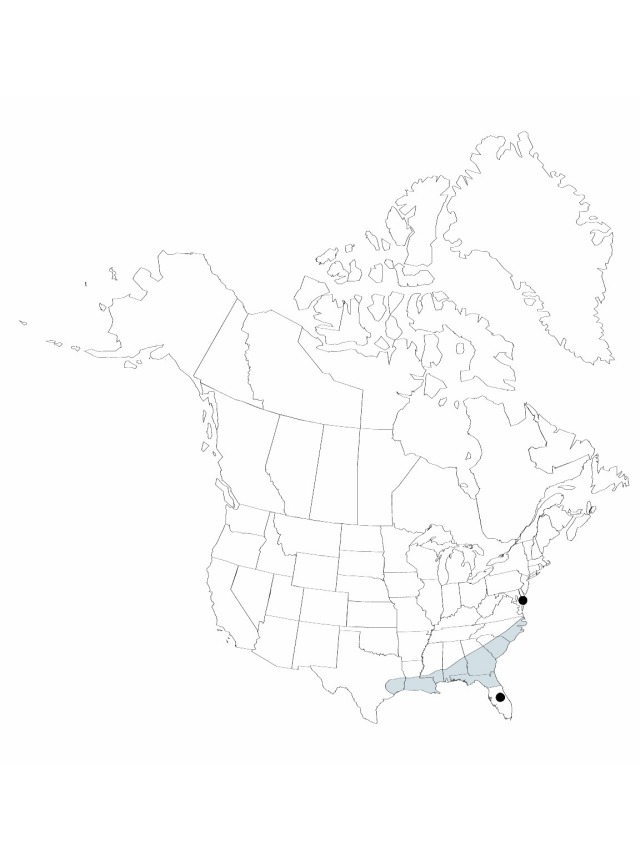Difference between revisions of "Juncus polycephalus"
Flora Boreali-Americana 1: 192. 1803 (as polycephalos).
Synonyms: Juncus echinatus Muhlenberg Juncus engelmannii Buchenau
Treatment appears in FNA Volume 22.
FNA>Volume Importer |
FNA>Volume Importer |
(No difference)
| |
Revision as of 21:00, 16 December 2019
Herbs, perennial, cespitose, 6–10 dm. Culms erect, 3–14 mm diam. Cataphylls absent. Leaves: basal 2–3(–6), cauline 1–4, brownish green; auricles absent; blade 8–70 cm × 4–8 mm. Inflorescences panicles of 16–82 heads, 10–30 cm; primary bract erect; heads 20–30-flowered, spheric, 8–12 mm diam. Flowers: tepals green to reddish, lance-subulate, 3–4 mm, nearly equal, apex acuminate; stamens 3, anthers 1/3–1/2 length of filaments. Capsules exserted, straw-colored, 1-locular, narrowly ovoid, 4–5 mm, apex tapering to beak, remaining after dehiscence. Seeds lance-ellipsoid, 0.5–0.6 mm, not tailed.
Phenology: Fruiting spring–fall.
Habitat: Wet or seasonally wet shores, depressions, occasionally in fairly deep water of streams, usually with a peaty or mucky substrate, occasionally sandy to gravelly
Elevation: 0–100 m
Distribution

Ala., Fla., Ga., La., Md., Miss., N.C., S.C., Tex.
Discussion
Selected References
None.
Lower Taxa
None.